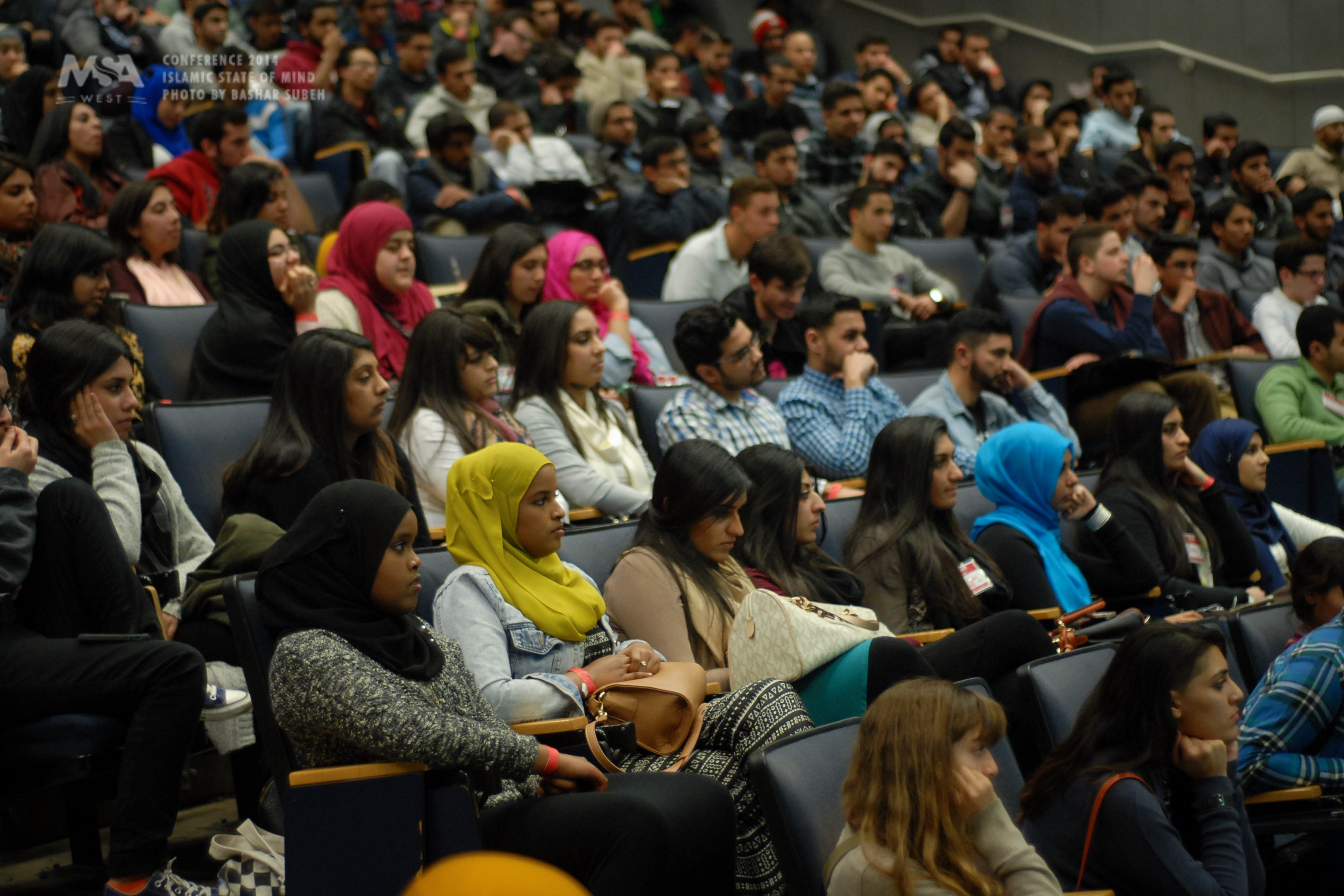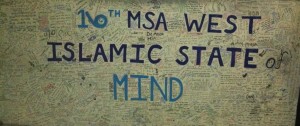This past long weekend of Dr. King’s birthday, over a thousand Muslim students from colleges and universities up and down the west coast gathered on the serene campus of UC Davis for the 16th annual MSA West Conference. MSA West acts as an umbrella organization for Muslim Student Associations in the region, providing access to educational resources, community building opportunities, and organizing collaboration across campuses for large scale campaigns. As the round of cheers during the entertainment session regional roll call showed, there were attendees present from most campuses in California, and even some from out of state.
The theme of this year’s conference, “Islamic State of Mind,” brought the focus to cultivating a frame of thought that anchored every action, every thought back to the basics of Islam. The first main session that welcomed attendees to the Conference, titled “What Is Your State of Mind: Renewing Intentions,” effectively set the tone for the theme because it asked listeners to consciously return to the root of all their actions: intention.
With the focus being on fundamentals, it was only fitting that this session was led by prominent scholars from two major sects of Islam today, Imam Mustafa Umar (who identifies as Sunni) and Imam Sayed al-Qazwini (who identifies as Shi’a). Their collaboration on this topic served as an important reminder that despite differences, the core of Islamic practice remains grounded in shared tenets.
In keeping with the theme of the Conference, workshops steered away issues of Fiqh (Islamic jurisprudence) and technicalities that differ across schools of law and focused on essential commonality. Parallel workshop sessions were geared toward topics like sincere self development, personal relationships with Allah, and Islamic approaches to contemporary community concerns like activism, relationships, and holistic education.
Workshop leaders included individuals with religious, intellectual, and social clout, like CAIR regional directors, an Egypt educated Imam with a Masters from Georgetown who also runs a popular blog where he often dispenses his intensive knowledge of Shari’ah to curious inquirers, a film producer, founders of universities and non-profit organizations, and generally well respected members of widespread communities. The line up was extensive and inclusive enough that attendees were sure to find at least one, if not several, speakers they could relate to.
This year’s Conference was significant in the caliber of its communal atmosphere. Obviously, bringing together over a thousand college students is in itself a recipe for a mass social, it was the addition of the speakers to this mix that provided it with further depth. Some joined in contributing the annual community art project, jotting their favorite quotes and reflections from the Conference. Others wandered around mingling during break, talking to attendees about their experiences thus far and making an effort to relate on a personal level, continuing to dispense their knowledge even in these moments. One speaker, Sheikh Alaeddin El-Bakri, reached out to Conference organizers to arrange counseling sessions for individuals who were interested, providing 15 minute intervals of one on one time.
With the MSA West Conference’s consistent focus on a return to the fundamentals of Islam, it was fitting that it happened to fall on the birthday of Dr. Martin Luther King, Jr., a pastor and prominent leader of the African-American Civil Rights movement. His consistent application of non-violence stemmed from the Christian doctrine of “turning the other cheek” to aggressors, and he viewed his faith as a potential force for positive social change. Dr. King’s derivation of his methodology from what he viewed as the essential truth of religion serves as a reminder that faith need not be mutually exclusive to societal influence and activism. Imam Osama Eisa bolstered this concept in his farewell remarks during the last main session of the Conference, reminding attendees that the lessons in the Qur’an are there for individuals to humble themselves and reflect on their own lives, serving as an active guide book to the cultivation of an “Islamic State of Mind.”


